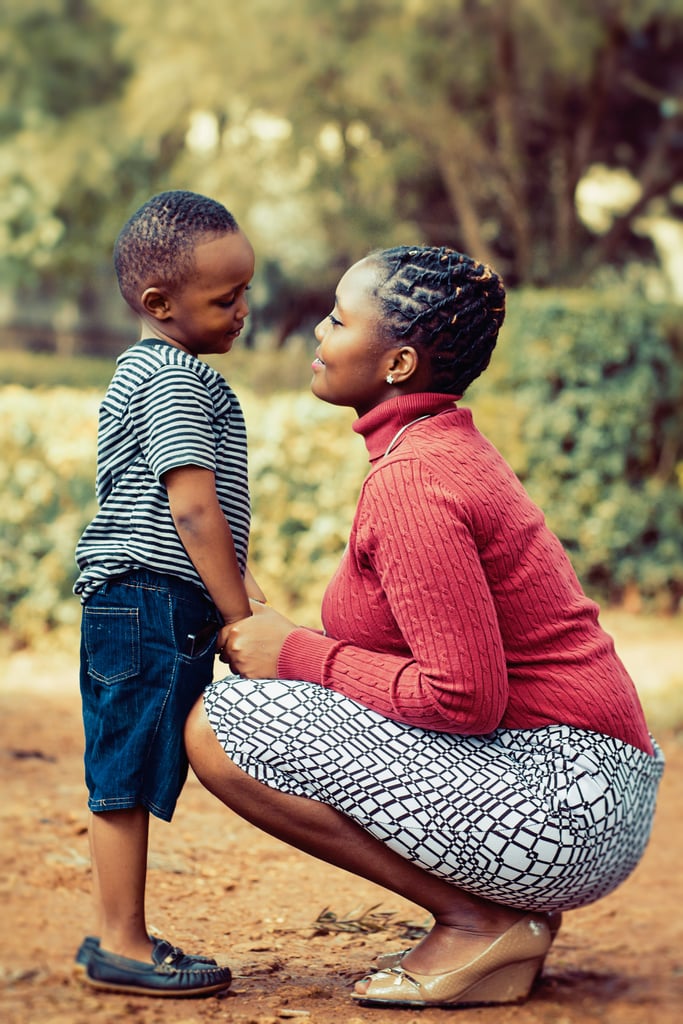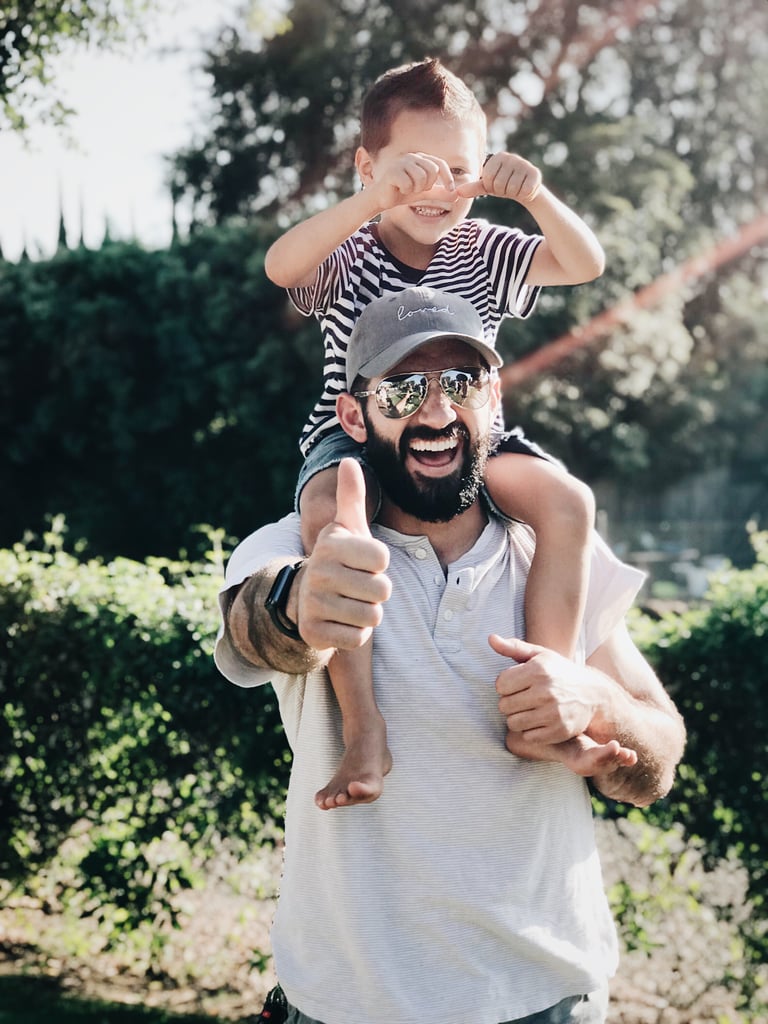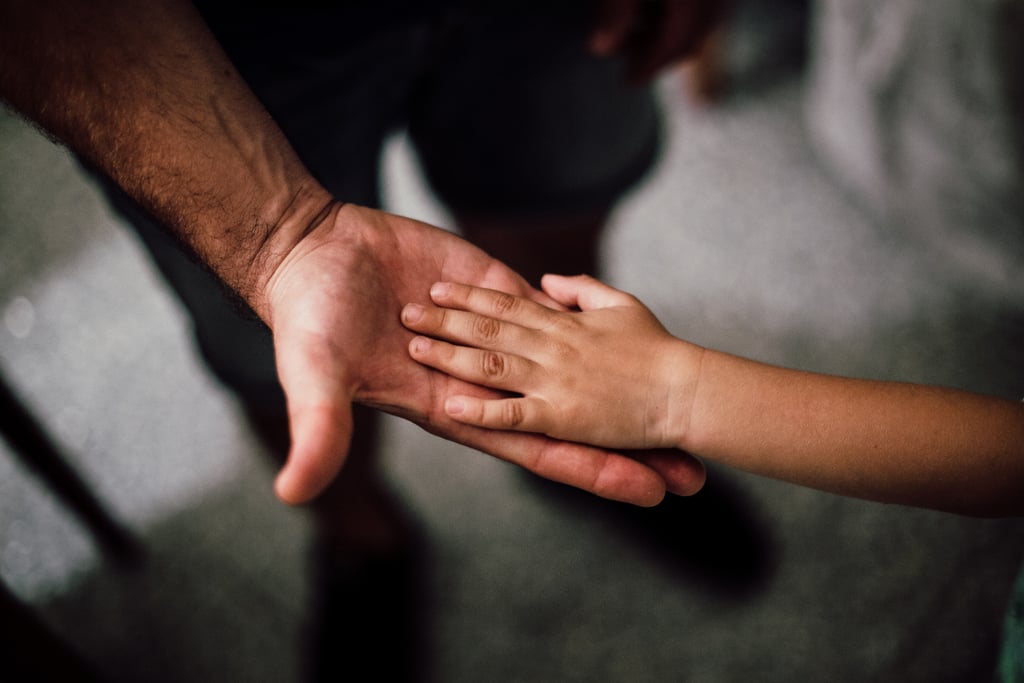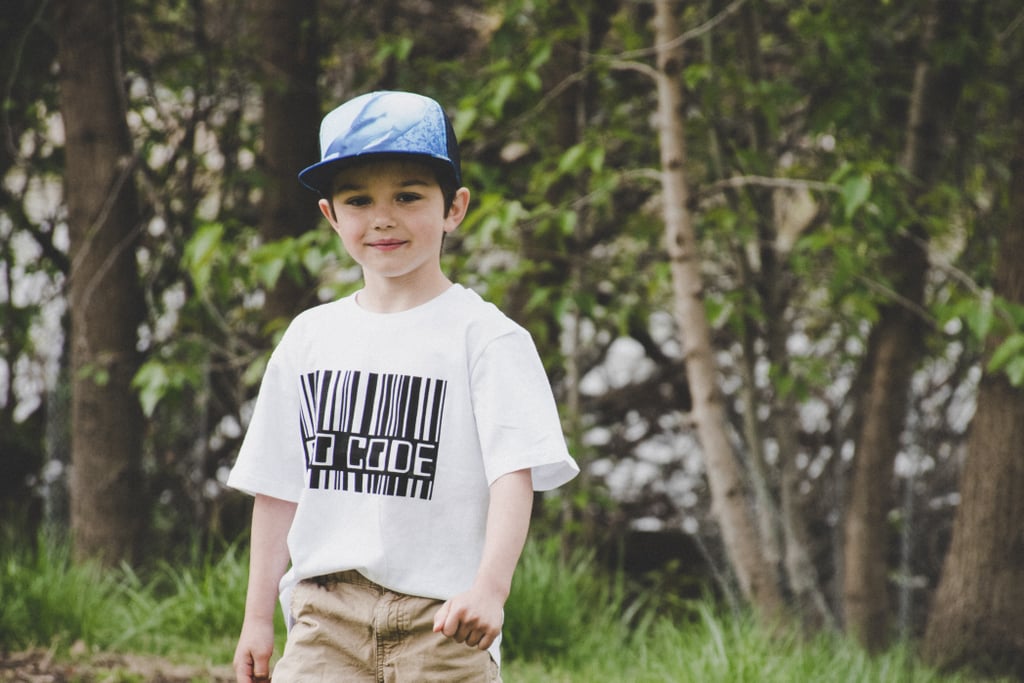Ever since the #MeToo movement [1] started, the discussion around consent and sexual assault has been on our collective minds [2]. And with Brett Kavanaugh recently being appointed to the Supreme Court [3] after being accused of sexual assault and misconduct by three different women, it's clear that how we, as a society, deal with the issue has a very long way to go. While many of my friends with daughters have been proactive about teaching their children to stand up for their bodily autonomy [4] and talking about private parts, boys aren't given quite the same message. Knowing how to talk to our sons about sexual consent [5], heartbreaking current events, and respecting bodies in an age-appropriate way can feel tricky.
"These conversations donʼt have to be scary and can even be quite relaxed," Amanda Atkins [6], a licenced marriage and family therapist [7], tells POPSUGAR. "The sooner you introduce your child to the idea of body safety and consent, the more comfortable he will be with the topic. Remember that our kids are looking to us to gauge how they should react to certain subjects — if you feel uncomfortable talking about sexual abuse, your son will take notice." For tips and phrases to use to teach your son about sexual assault, keep reading.
Start Talking About It Early
"Age-appropriate discussions about sexual assault should happen as soon as your son is able to understand the concept of privacy and should continue to be an ongoing conversation," Atkins explains. Talking with your child, even at a young age, can instill in them a sense of ownership over their bodies and a respect for others. "For a very young child (2-3), you might begin to identify his penis and explain who is allowed to see/touch private parts. Start basic, and make it a casual and normal conversation."
Encourage Them to Tell Trusted Adults About Potential Abuse
"Sexual abusers assume the child will keep the abuse secret, so itʼs very important that you talk to your child about telling a grown-up if someone touches them inappropriately or asks to see their private parts," warns Atkins. "As many of us know, abusers arenʼt always adults, so itʼs good to reinforce the concept of privacy regarding peers at school, daycare, church, etc."
Boys Need to Learn Boundaries For Themselves and Others
While many mothers of daughters are doing a great job teaching them to explicitly demand respect for their bodily autonomy, boys also need the same lessons. "We must raise boys to be feminists, which means teaching them to respect their and otherʼs bodies," Atkins advises. "Regardless of gender, children must be taught healthy boundaries and feel empowered to protect their bodies."
Teach the Body Parts
A little anatomy lesson can go a long way. "Itʼs important to teach boys the correct names of body parts because it gives them one more tool to combat sexual abuse," Atkins tells POPSUGAR. "Boys should know the correct male and female anatomy, including penis, scrotum, clitoris, and vagina." This can help alleviate some of the mystery and fear around their private areas. "These arenʼt dirty or embarrassing words, nor are they body parts that we are ashamed of, so informing boys of the correct terminology is essential."
You Can Keep It Casual
"Conversations about safe touch and consent should be interwoven in casual conversations," Atkins says. "Bath time, potty-training, diaper changes — these are all good opportunities to educate our sons about their bodies and privacy. Remind your son that his body belongs to him, and no one else is allowed to touch it. In the same way, other people's bodies belong only to them, and we arenʼt to touch them until we are given permission, and weʼre old enough to do so."
Avoid Saying "Good/Bad Touch"
"Experts recommend using the terms "safe/unsafe touch" as opposed to "good /bad touch," because, for example, if a child has to get a vaccination in the buttocks, that is a safe, albeit seemingly "bad," touch. "The conversation evolves as your son grows, so always be sure to keep it age-appropriate," she advises.
Use Some Simple Phrases Every Day
Atkins recommends that parents use the following phrases as often as they can, to make sure they're casual but still reinforcing consent and bodily autonomy:
- No means no.
- Please respect my boundaries.
- I feel uncomfortable when you touch my __________.
"The above statements help model boundaries and consent. Not only are you teaching your son to protect his own body, but youʼre also educating him on the importance of consent and how to respect other peopleʼs bodies," Atkins explains.
Give Them Opportunities to Display Ownership
"Allow your son to have ownership over his body," Atkins says. "For example, I recently asked one of my sons if he would feel comfortable with a babysitter giving him a bath. He said that he would not feel comfortable with that. That was a nice opportunity for me to respect his boundaries."
As They Get Older, Monitor What They Watch
"Once boys get to the age of being active on social media or the internet, itʼs important to broach the topic of pornography," Atkins explains. "Pornography often emulates rape and molestation culture. Porn is also often a boyʼs first introduction to sex, and it can be highly influential in his expectations about sex. "If you suspect your son is looking at porn or may accidentally stumble across it, explain that you want your son to have a positive and realistic experience with sex. Even if you see nothing morally wrong with it, I recommend explaining that pornography can be harmful to a developing brain and likely reinforces themes related to rape and sexual harassment. It has explicit themes that arenʼt healthy for a young person whoʼs just beginning to understand sex. I recommend setting up limits in your household and blocking pornography websites so your young son doesn't have the ability to access them."
Address Current Events in an Age-Appropriate Way
"Itʼs OK to talk to your children about current events such as the SCOTUS case," she tells POPSUGAR. "Itʼs appropriate to explain generally what happened: 'a boy did something to a girl that she did not consent to and now she is talking about it because that boy has grown up and might have a very important job.' You can use this to explain how important it is to treat others with respect."
You Can Learn a Lot From Both the Abuser and the Abused
"The learning lesson from Brett Kavanaugh: if we disrespect people and their bodies, it will hurt them for a very long time. The learning lesson from Dr.Ford: it takes bravery to speak out about sexual abuse, but itʼs important to do so," Atkins explains.










